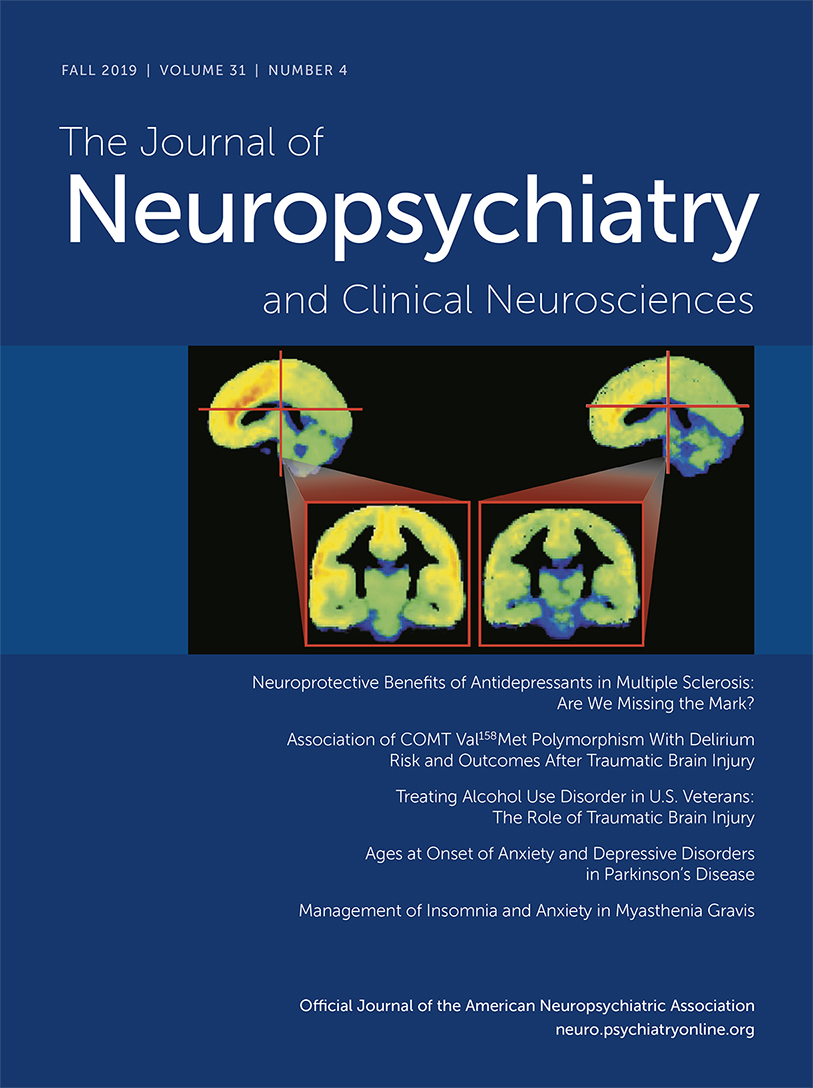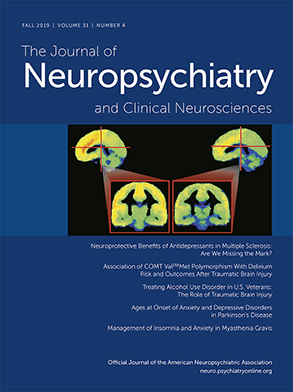Neuroprotective Benefits of Antidepressants in Multiple Sclerosis: Are We Missing the Mark?
Abstract
Stress, Depression, and Progression In MS
Similarities Of Dysregulation Occur In MS, Stress, and Depression
What We Know About Antidepressants and Neuroprotection In MS
Animal Studies
Human Studies
| Author | Objective | Sample | Design | Intervention | Measures | Outcomes | Comments |
|---|---|---|---|---|---|---|---|
| Mostert et al. (65) | Pilot study to assess whether fluoxetine (SSRI) has neuroprotective properties for people with SPMS or PPMS | PwMS, N=42; IG/CG, N=20/22; PPMS or SPMS, IG PP/SP, N=6/14; CG PP/SP, N=7/15 | Double-blind randomized placebo-controlled trial; longitudinal prospective for 2 years | Fluoxetine, 20 mg twice daily | Every 3 months: EDSS; 9-HPT; AI. baseline, 1 and 2 years: MRI scans; MSFC; FIS; GNDS; SF–36 | Thirty-five percent (7/20) in the intervention group and 32% (7/22) in the control group experienced sustained progression on the EDSS, 9-HPT or AI at 2 years, with no significant between-group effect on time to progression time to progression and no between-group differences identified for T2 lesion load, gray or white matter volume. | Authors reported an unusually low rate of disability progression in the placebo group, which they suggested decreased statistical power. Participants were required to have an EDSS score between 3.5 and 6.5. Excluded participants were those with moderate to severe depressive symptoms. |
| Mostert et al. (62) | Exploratory study to assess whether fluoxetine (SSRI) has neuroprotective properties for people with RRMS or relapsing SPMS | N=38; IG/CG, N=19/19; RRMS or SPMS, IG RR/SP, N=18/1; CG RR/SP, N=16/3 | Double-blind randomized placebo-controlled trial; longitudinal prospective for 6 months | Fluoxetine, 20 mg/day | Participants assessed for gadolinium-enhancing lesions on brain MRI at 4, 8, 16 and 24 weeks | At 16 weeks: mean new enhancing lesions was 1.21 (SD=2.6) in the fluoxetine group and 3.16 (SD=5.3) in the control group (p=0.05); number of new lesions on scans was 24% (nine lesions) compared with 47% (18 lesions) in the fluoxetine compared with placebo group, respectively, (p=0.03); 63% (N=12) versus 26% (N=5) of people did not show new enhancing lesions in the fluoxetine versus control group respectively, (p=0.02); at 24 weeks: mean new enhancing lesions was 1.84 (SD=2.9) in the fluoxetine group and 5.16 (8.6) in the control group (p=0.15); number of new lesions on scans was 25% (19 lesions) compared with 41% (31 lesions) in the fluoxetine compared with placebo group respectively, (p=0.04); 32% (N=6) versus 21% (N=4) of people did not show new enhancing lesions in the fluoxetine versus control group respectively, (p=0.71). | Participants required an EDSS score ≤6 and at least one relapse in the prior year or two relapses in the prior 2 years or one gadolinium-enhancing lesion on MRI. Excluded participants were those with moderate to severe depressive symptoms. |
| Mostert et al. (64) | Exploratory study to assess whether fluoxetine (SSRI) improves NAA/creatine ratio or choline/creatine ratio in cerebral white matter of people with MS | PwMS, N=11; RRMS, N=7; SPMS, N=4 | Longitudinal prospective for 2 weeks; no control arm | Fluoxetine, 20 mg/per for 7 days (week 1) then 20 mg twice daily for 7 days (week 2) | H-MRS at baseline, week 1 and week 2. T25WT; AFQ | A significant difference was found between NAA/Cr ratio mean at baseline, 1.77 (SD=0.18) and 2 weeks, 1.84 (SD=0.20) (p=0.007), which the authors reports to represent evidence of reversible axonal dysfunction from the effects of fluoxetine; there was no significant difference for Cho/Cr ratio mean at baseline, 1.06 (SD=0.13) and 2 weeks, 1.06 (SD=0.13) (p=0.84); there was no significant difference between baseline and 2 weeks for the T25WT or AFQ (both p values >0.05). | Did not report on the participants’ level of depressive symptoms or whether this was an exclusion criterion. |
| Mitsonis et al. (63) | Assessment of the effects of escitalopram (SSRI) on stress-related MS relapses in women with MS | PwMS, N=41; all women; all RRMS; IG/CG, N=21/20 | Open-label randomized-controlled trial; longitudinal prospective for 1 year | Escitalopram, 10 mg/pay | Stressful life events diary confirmed by a psychiatrist at monthly appointment; categorized into short- or long-term; neurologist confirmed relapses and EDSS assessed at monthly appointments | Stressful life event risk for relapse was 2.9 times higher for the control group than the escitalopram group (p<0.001); this risk was only influenced by long-term but not short-term stressful life events; there was a cumulative risk of relapse with increased stressful life events in the control group (hazard ratio for stressful life event: 1=3.3, p=0.007; 2=13.2, p<0.001; and ≧ 3=20.9, p<0.001), whereas, the hazard ratio was only significant for three stressful life events in the escitalopram group (hazard ratio for SLE: 5.3 (p<0.001), suggesting that escitalopram provides a protective buffer. | Participants were premenopausal, had at least one MS relapse within the year prior to study enrollment, and an EDSS score. Participants with clinically significant mental health issues, (per DSM-IV criteria) at baseline were excluded, including those with unipolar and bipolar depressive disorder and anxiety disorders. Stressful events directly related to MS were excluded. |
| Cambron et al. (70) | FLUOX-PMS: assessment of whether fluoxetine (SSRI) has neuroprotective properties for people with SPMS or PPMS | PwMS, N=139; PPMS, 40%; SPMS, 60%; IG/CG, N=69/68 | Double-blind randomized placebo-controlled trial; longitudinal prospective for 2 years | Fluoxetine, 40 mg/day; started at 20 mg/day and titrated to 40 mg/day by week 12 | 9-HPT; T25WT; AI; MRI; cognitive assessment | No significant difference between groups for time to disease progression, which was measured as the proportion of patients without sustained 20% increase in T25WT or 9-HPT; 66% in the fluoxetine group and 58% in the control group did not experience disease progression (p=0.07); no significant difference was found between the groups on the AI (p=0.37). | Results were obtained from media reports following the ECTRIMS 2016 meeting where results were announced. Excluded participants were those with moderate to severe depressive symptoms. MRI results have not yet been reported. |
| Chataway et al. (69) | MS-SMART: assessment of 445 people with SPMS to identify whether there is a neuroprotective benefit from amiloride, fluoxetine (SSRI), or riluzole compared with placebo | PwMS, N=445; all SPMS; randomized across four arms | Phase II double-blind randomized placebo-controlled four-arm trial; longitudinal prospective for 96 weeks (2 years). | Three intervention conditions: amiloride, 5 mg twice daily for 96 weeks (5 mg/day for first 4 weeks); fluoxetine, 50 mg twice daily for 96 weeks (50 mg/day for first 4 weeks); riluzole, 50 mg twice daily for 96 weeks (50 mg/day for first 4 weeks) | 9-HPT; T25WT; AI; MRI; cognitive assessment | At the present time, only preliminary findings have been announced; the researchers stated that none of the three drugs assessed, including fluoxetine, showed a neuroprotective effect in SPMS. | Information obtained from the MS Society. Excluded participants were those with moderate to severe depressive symptoms. Participant EDSS score requirement between 4 and 6.5. |
What Are We Missing?
Conclusions
References
Information & Authors
Information
Published In
History
Keywords
Authors
Competing Interests
Metrics & Citations
Metrics
Citations
Export Citations
If you have the appropriate software installed, you can download article citation data to the citation manager of your choice. Simply select your manager software from the list below and click Download.
For more information or tips please see 'Downloading to a citation manager' in the Help menu.
View Options
View options
PDF/EPUB
View PDF/EPUBLogin options
Already a subscriber? Access your subscription through your login credentials or your institution for full access to this article.
Personal login Institutional Login Open Athens loginNot a subscriber?
PsychiatryOnline subscription options offer access to the DSM-5-TR® library, books, journals, CME, and patient resources. This all-in-one virtual library provides psychiatrists and mental health professionals with key resources for diagnosis, treatment, research, and professional development.
Need more help? PsychiatryOnline Customer Service may be reached by emailing [email protected] or by calling 800-368-5777 (in the U.S.) or 703-907-7322 (outside the U.S.).

